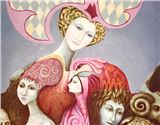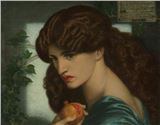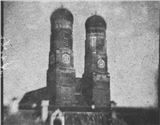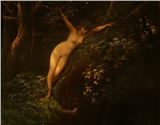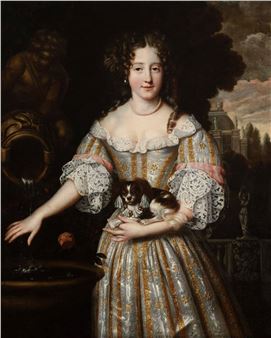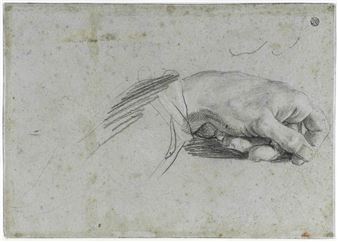Delacroix as Writer
Eugène Delacroix died on August 13, 1863 in Paris, in the Rue de Furstenberg apartment that is now the Musée Eugène Delacroix. To mark the 150th anniversary of the artist's death, the museum is drawing on its collection and recent acquisitions to present drawings, handwritten items and photographs on the theme of "Delacroix as Writer".
A major nineteenth-century painter, Delacroix attracted critical attention when very young with his work's power and inventiveness. But he was also a remarkable writer, whose literary capacities were backed up by the profound classical culture and the keen sense of composition and narration to which his Journal, kept all his life in small notebooks discovered after his death, bears witness. These were intimate personal writings whose author did not exclude the possibility of their being made public one day: "The authentic great man can be seen in close-up", he noted in 1850.
An ardent observer of both nature and works of art, Delacroix saw memory as crucial: "The arts are born of the sensitive imagination's need to pin memories down", wrote the man for whom writing was a way of making the fleeting moment tangible, of preserving emotional truth.
This presentation at the Musée Eugène Delacroix will offer visitors the opportunity to discover the garden, recently refurbished under the supervision of the Tuileries gardeners.
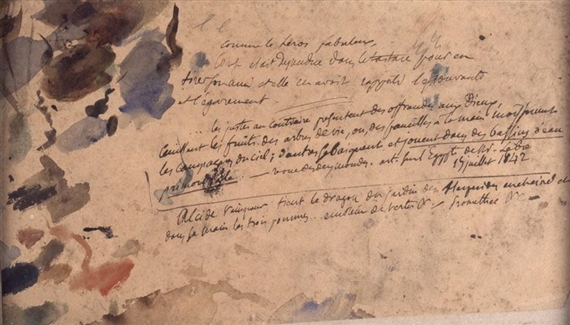
Recommended for you
Eugène Delacroix died on August 13, 1863 in Paris, in the Rue de Furstenberg apartment that is now the Musée Eugène Delacroix. To mark the 150th anniversary of the artist's death, the museum is drawing on its collection and recent acquisitions to present drawings, handwritten items and photographs on the theme of "Delacroix as Writer".
A major nineteenth-century painter, Delacroix attracted critical attention when very young with his work's power and inventiveness. But he was also a remarkable writer, whose literary capacities were backed up by the profound classical culture and the keen sense of composition and narration to which his Journal, kept all his life in small notebooks discovered after his death, bears witness. These were intimate personal writings whose author did not exclude the possibility of their being made public one day: "The authentic great man can be seen in close-up", he noted in 1850.
An ardent observer of both nature and works of art, Delacroix saw memory as crucial: "The arts are born of the sensitive imagination's need to pin memories down", wrote the man for whom writing was a way of making the fleeting moment tangible, of preserving emotional truth.
This presentation at the Musée Eugène Delacroix will offer visitors the opportunity to discover the garden, recently refurbished under the supervision of the Tuileries gardeners.
Artists on show
Contact details


 ARTISTS
ARTISTS

